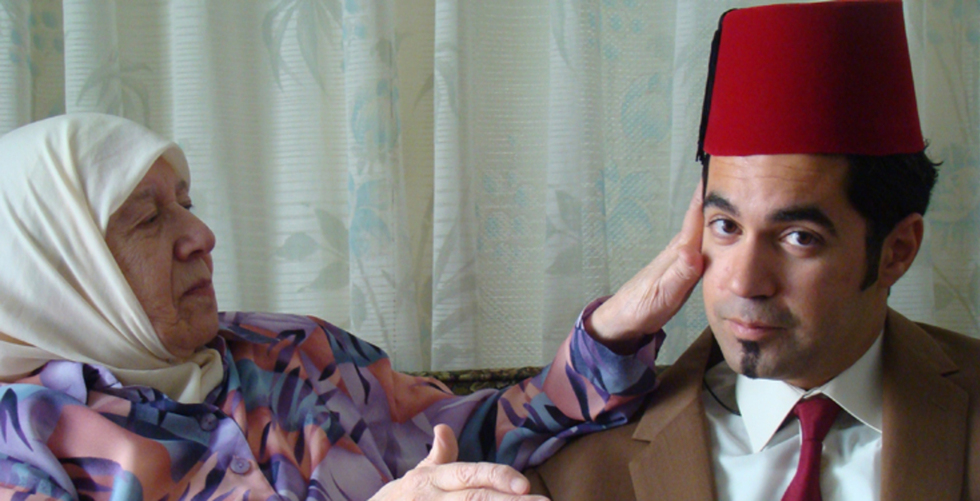
BY HANIA MROUE |
What Arab Stories Need To Be Told? And Will You Listen?
Arab cinema, in its diversity and richness, finds its audience.

When I began preparing the first edition of our Arab film festival in Beirut in 2000, many from the regional film industry questioned: “But what for? There’s no audience for Arab films!” This dubious assumption implied that the audience - this abstract mass of people - had absolutely no interest in content coming out of the Arab world, and hence, was neither interested in discovering regional talents, nor able to relate to Arab subjects, characters, genres or stories.
For decades, many great Arab filmmakers therefore suffered from a lack of visibility, support and access to the market. As a result, several Arab films were produced but never released. More problematic was the fact that industry professionals often underestimated the audience’s capacity and desire to learn and to discover new images, cinematic approaches and stories coming from the Arab region.
Another major problem that prevented Arab films from developing and reaching Arab audiences was the restrictiveness of the Arab film market. Very rarely did we see Arab films penetrating Arab borders, despite the fact that nearly all of these films were produced in one language - Arabic.
But things have been changing in the past decade, largely due to local initiatives and technological development. For instance, digital technologies have enabled greater representation of local and regional voices. Resultantly, a new generation of filmmakers has emerged, producing low-budget films, without the need for public support and regional funding. Arab filmmakers’ talent and creativity can now be showcased faster, cheaper and more widely than ever.
The richness of Arab cinema resides in its diversity. ‘Arab cinema’ is not one recognizable cinematic genre, but a multiplicity of approaches, which reflect many different influences, cultural identities and experimentations.
Young filmmakers from Palestine and Lebanon have begun producing films at very low costs. The intense political complexity and instability within these countries has inspired many great documentaries, dramas and even comedies. Sarcasm, derision, or cynical approaches, has sometimes been the only way for filmmakers to express their views on their surreal and sometimes unbearable living and/or working conditions.
An independent film industry is continuing to emerge within the Middle East and is increasingly receiving worldwide attention. Independent Egyptian cinema has flourished recently in Egypt, with courageous filmmakers defying the national film industry’s system of strict rules. Some independent filmmakers decided to experiment beyond the norm and produced beautiful films that quickly captured programmers’ attentions around the world. New cinematic experiences are also thriving in Iraq, where audacious young filmmakers have managed to produce exceptional films in extreme situations, with virtually no funding.
Public support in Tunisia and Morocco encouraged the development of a major cinema production (and co-production with Europe) as well as some co-productions and collaborations with other Arab countries. In Jordan and the Gulf countries cinema productions are at their beginnings, but appear to have very promising prospects.
A major factor fostering the development of Arab cinema is the continuing emergence of film festivals within the region, which are providing international platforms for Arab talents. The Doha Tribeca Film Festival (DTFF) is a primary example of such, and plays an important role in shedding attention on some of the exquisite films that come out of the region. The festival is further complimented by DFI’s financing department, which enables the development of Arab films and creative documentaries. Since its inception last year, DFI’s financing department has supported the creation and promotion of many local and regional films. These films have reflected various genres and have communicated using dynamic cinematic languages – reflecting the diversity and richness of Arab cinema. DFI’s leading role in offering Arab talents platforms to learn, develop, create and exchange, makes it central to the development of a film industry in the Arab region.
Cinema may not change the world, but it helps to open people’s minds to new ideas and ways of storytelling. It cannot depict the complete history of a region or area, but it can tell individual’s stories and viewpoints. MENA’s recent revolutions will, hopefully, generate greater freedom of expression and various other socio-political reforms. At present, however, we are left with many complex questions: How and to what extent will the revolutions affect Arab cinema? Will they open borders so that Arab films can better circulate throughout the Arab world? Will it allow new voices to emerge and to be heard? How will the artists capture these immense regional changes? Once the dust from these events clears we may have a better idea of what the answers might be.
As a programmer at the Doha Film Institute- I’m neither a film critic nor a film analyst. I’m simply a fan of a certain kind of cinema, and a certain approach to filmmaking – that being the art of observing, feeling and communicating what is beyond words. The Arab world is increasingly producing films filled with deep meaning, often in reflection of the difficult and complex socio-political realities occurring in the region. Perhaps the world is now finally ready to listen to the stories of Arabs. Could there be an audience for Arab cinema after all?
